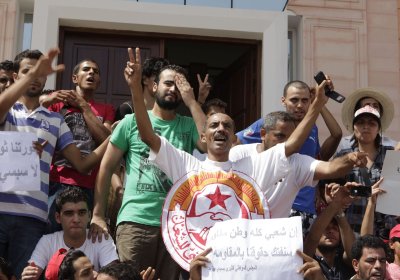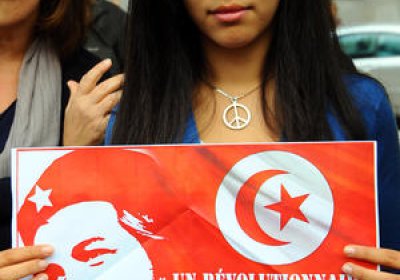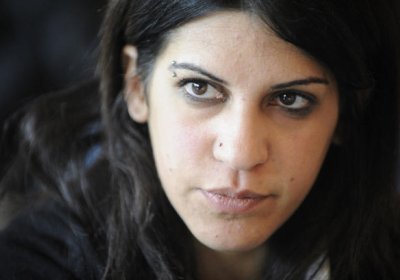Abdel Jabbar Madouri has been a militant in Tunisia from his early secondary school days. He was jailed three times (in 1987, 1993 and 2002) because of his political activism. After every arrest, he was tortured, then sentenced to more than 12 years in jail.
Madouri spent four years living underground during the Ben Ali regime, which was overthrown in January last year -- sparking the “Arab Spring”. He was also deprived of the right to work or to obtain a passport.
Tunisia
Almost a year since Tunisia's Constituent Assembly (CA) elections, Islamist party Ennahda, leader of the coalition government, continues to lose the confidence of those who rose up against dictator Zine el-Abidine Ben Ali in late 2010.
Anger was prompted by Constitutional Article 27, which was passed by the Committee on Rights and Freedoms on August 1, defining women's rights as "complementary" to those of men, placing women "at the heart of the family and as man's associate".
The rhetoric from Tunisia's interim government, led by the Islamist party Ennahda (the Renaissance), as well as the financial establishment, is that the old regime is gone.
What is needed now, they say, is stability and the restoration of economic growth to complete the transition to democracy.
International Monetary Fund (IMF) Managing Director Christine Lagarde said on April 2: "Investors and the population at large need to regain confidence in the future of the economy, to look beyond the short-term difficulties and provide the foundations for a rebound of the Tunisian economy."
On January 5, another Tunisian set his body on fire. This happened in Gafsa and the date corresponds to the beginning of the social movement in the mining basin in 2008.
The self-immolation coincided with the visit of three ministers, who visited the city in the hope of negotiating with people staging a sit-in for their social rights. Clashes started between the inhabitants and security forces.
On election night in Tunisia, as it became clear that moderate Islamist party Ennahda had won most seats in the Constituent Assembly and would be forming government, many Tunisians feared for the revolutionary struggle that has continued since the uprising that overthrew Zine El Abidine Ben Ali in January.
In the final count, Ennahda received just under 37% of the popular vote, and won 90 seats out of the 217-member assembly. The next largest vote was won by the centre-left Congress for the Republic Party (CPR), with 30 seats.
After being delayed by three months, the official campaign for Tunisia's constituent assembly began on October 1, paving the way for the October 23 elections.
More than 80 different parties, many formed or legalised since the overthrow of dictator Zine el Abidine Ben Ali on January 14, and about 1500 different lists vyed for a place in the 218-member assembly.
Lina Ben Mhenni, 27, is a Tunisian blogger and activist for freedom of speech, women’s rights and student rights. Her blog, A Tunisian Girl, was censored under Zine el Abidine Ben Ali’s regime.
During the early days of the uprising against Ben Ali that started on December 17 last year, she travelled to the rural Tunisian cities of Sidi Bouzid, Regueb and Kasserine to document police repression and catalysing protests throughout the country.
Egyptian scholar and researcher Samir Amin spoke with Hassane Zerrouky on the Arab revolts that have broken out this year, for L'Humanite. The interview was translated by Yoshie Furuhashi for www.mrzine.org . Abridged version appears below.
What's happening in the Arab world six months after the fall of dictator Ben Ali in Tunisia?
The Tunisian Communist Workers’ Party (PCOT) held the first session of its first party congress as a legal organisation on July 22. The congress was held over July 22-24 in Tunis.
It featured foreign delegates and guests from Europe, Latin America and the Arab world. Estimates of attendees ranged from 1700 to 2000 people.
PCOT leader Hamma Hammami gave a speech in which he defended the party from accusations of involvement in violence.
The Kasbah in Tunis was once again the scene of violent clashes between police and revolutionary youth after protests on July 15 to advance the revolution were broken up by force.
The protests, dubbed “Kasbah 3”, were demanding the resignation of key ministers in the interim government and the sacking of those responsible for the killings of protesters during the January uprising against dictator Zine el Abidine Ben Ali.
The protests also demanded the regime stick to October 23 as the date for constituent assembly elections.
The revolutionary struggle for democratic and economic freedoms continues to grow in Tunisia and Egypt in the aftermath of the ousting of dictators Zine el Abidine Ben Ali and Hosni Mubarak.
Western powers are working to block these struggles — just as they supported the fallen dictators until the very end.
Vast sums of money have been pledged by the United States, European Union and the Group of Eight (G8 — the US, Britain, France, Germany, Italy, Canada, Russia and Japan) to aid what British Prime Minister David Cameron termed “democracy, freedom and prosperity” in the Middle East.
Tunisia's first election since the downfall of dictator Zine el-Abidine Ben Ali may be delayed from July 24 to October 16, Kamel Jandoubi, president of the High Authority for the Elections, told a meeting of political parties on May 26.
But days later, the interim government reaffirmed its commitment to the July 24 elections for a constituent assembly.
Moez Sinaoui, spokesperson for the interim prime minister Beji Caid el Sebsi , told state news agency TAP on May 29 that the original date “is a roadmap and a position of principle to prepare this important political event”.
- Previous page
- Page 2
- Next page







